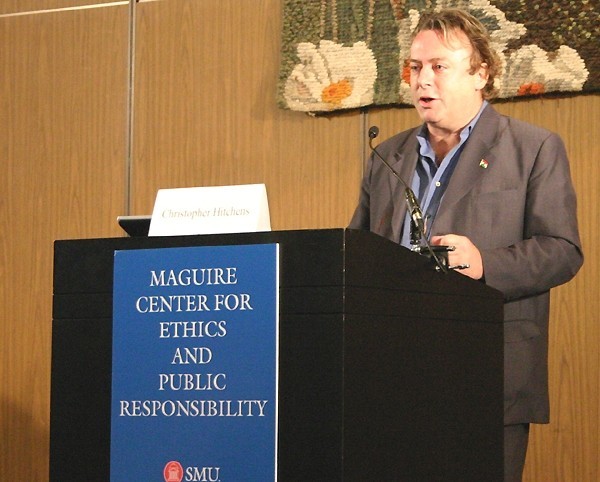
Ethics lectures focuses on morality
“How can we keep our bad habits and still live the goodlife?” asked sophomore Chelsea Hilliard to the crowdassembled Saturday morning for the Maguire Center for Ethics’annual conference.
The conference brought SMU students, community members andstudents from other universities together to answer that veryquestion. This year the topic focused on reduced harm products,specifically tobacco. Hilliard and Junior Roxanne Dass were thisyear’s co-chairs of “Tobacco at the Crossroads: ADebate on the Ethics of Reduced Harm Products.”
“We wanted to raise students’ awareness of issuesthey deal with everyday,” said Dass. “And just letstudents know all of the ethical decisions they face.”
One of the ethical issues the organizers faced was that theconference was initially offered money from an organization thathad connections to “big tobacco.” They declined themoney once the connection was discovered. The American HeartAssociation then offered financial support but was also refused bythe conference organizers due to conflict of interest.
“We didn’t want the event to lean one way or theother,” said Dass.
The morning started with attendees breaking into differentcolor-coded groups of around 15 people to discuss questions like,”Should the Food and Drug Administration regulate the tobaccoindustry and should the burden of healthcare fall on the publiceven when smokers are concerned?”
Senior Fidan Kasra said that the public already pays for a lotof programs for the greater good.
“Look at the jail system, we could just send them all tothe shock,” Kasra said, “but we don’t becauseit’s not right.”
After the group discussion, each group chose a representativeand key questions that arose from the discussions to ask thekeynote speaker, Christopher Hitchens.
Christopher Hitchens, author, columnist and contributing editorto The Atlantic Monthly and Vanity Fair spoke of theincreasingly evasive nature of the American government. Hitchenstold many anecdotes when smokers had been segregated fromnon-smokers. Now, he says, the government has gone out of its wayto prevent smoking from happening.
“The citizen is in no way a property of the state,”said Hitchens, “and everyone has the right to go tohell.”
Hitchens said he was glad that they’ve banned smoking onairplanes where non-smoking employees were forced to work insmoking conditions. But he says the government has gone too farwhere people aren’t even allowed a choice. There was a timewhen trains used to have the last car as the smoking car.Passengers did not have to go into that car but now passengerscan’t smoke anywhere.
“Wherever I go there is someone that knows better thanme,” said Hitchens.
During the questions and answers session one question calledHitchens’ credibility to the front by asking if he wasreceiving money from cigarette companies to speak forsmokers’ rights. He joked that he wouldn’t mindreceiving money from his cigarette brand of choice but deniedreceiving money from any big tobacco company.
Cary Maguire, the benefactor for whom the ethics center is namedfor, said he agreed with many of Hitchens’ points of thegovernment overstepping its bounds into personal choice.
“I think a lot of ethical choices should be made by thepeople themselves,” said Maguire, “it could get to thepoint where the government will tell you who you can or can’tdate.”
Though Hitchens was a relevant speaker to the conference, Kasrafelt the topic itself lacked relevance.
“I think that because of the War and it being an electionyear healthcare has taken a backburner,” said Kasra. But sheis still surprised at how much she learned.
“Initially I felt that tobacco companies should be forcedto stop their business,” said Kasra, “but now I believeit is more of a person’s choice and I can’t see how anindustry should be banned because a person can’t make thechoice on their own.”








